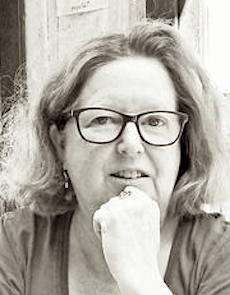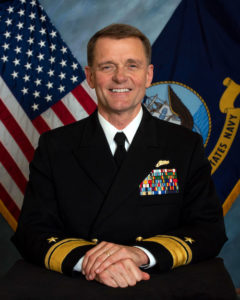Rebuilding Notre Dame
Presented by Professor Elizabeth Riorden
Tuesday, June 18th, 2019
5:30 Reception/6:15 Dinner/7:00 p.m. Presentation
Schiff Conference Center
Cintas Center at Xavier University
The FPLC invites you and your guests to a stellar presentation about the preservation of global cultural treasures, using the tragic fire of Notre Dame as a focus. Professor Elizabeth Riorden will offer a compelling insider view of how to preserve the world’s great cultural treasures.
 Elizabeth Riorden earned her Master of Architecture degree from Columbia in 1981. After working as an architectural designer and registered architect, she returned to an earlier career interest: archaeology. With B.A. degree from Brown in Ancient and Medieval Culture (magna cum laude 1978), Riorden had a deep interest in the built environment of past civilizations. In 1989 she participated in excavations at Troy in Northwest Turkey. Her Troy drawings and articles appear in Studia Troica. In 2002 she became a full-time academic, teaching architectural design, history and preservation at the University of Cincinnati’s School of Architecture and Interior Design.
Elizabeth Riorden earned her Master of Architecture degree from Columbia in 1981. After working as an architectural designer and registered architect, she returned to an earlier career interest: archaeology. With B.A. degree from Brown in Ancient and Medieval Culture (magna cum laude 1978), Riorden had a deep interest in the built environment of past civilizations. In 1989 she participated in excavations at Troy in Northwest Turkey. Her Troy drawings and articles appear in Studia Troica. In 2002 she became a full-time academic, teaching architectural design, history and preservation at the University of Cincinnati’s School of Architecture and Interior Design.
Riorden is a Fellow of the American Academy of Rome where her Fellowship project was a study of roof interventions in sensitive archaeological sites. For decades she pursued field work at the medieval site of Psalmodi in the Rhône delta of France, bringing her students to the ruined monastic site for training in advanced architectural documentation and analysis. In 2017 at the annual meeting of the European Association of Archaeologists in Maastricht, she presented “Early Gothic in the Midi; the Benedictine Abbey of Psalmodi.” She will share how we can safeguard the world’s architectural treasures.
Event sponsored by:



 Gene Price is an attorney with Frost Brown Todd and serves as a Rear Admiral in the U.S. Navy Reserve. He recently was assigned as Deputy Commander of the U.S. Tenth Fleet and Fleet Cyber Command.
Gene Price is an attorney with Frost Brown Todd and serves as a Rear Admiral in the U.S. Navy Reserve. He recently was assigned as Deputy Commander of the U.S. Tenth Fleet and Fleet Cyber Command.

 Stefan Schlüter will speaking on Jewish life in Germany, Germany’s coming to terms with its past, German-Israeli relations, rising anti-Semitism and populism in Europe. In addition, the meetings will provide opportunities to discuss these and a wider range of topics, such as transatlantic relations, migration issues and refugee policy, developments in the EU, Brexit, and the Middle East conflict.
Stefan Schlüter will speaking on Jewish life in Germany, Germany’s coming to terms with its past, German-Israeli relations, rising anti-Semitism and populism in Europe. In addition, the meetings will provide opportunities to discuss these and a wider range of topics, such as transatlantic relations, migration issues and refugee policy, developments in the EU, Brexit, and the Middle East conflict. There are more than 45 million victims of modern slavery today, working across agricultural, electronics, garment and other industries. Greater collaboration between businesses, government and communities is leading to change in Asia, though the threat of divestment campaigns, consumer boycotts, lawsuits, and associated reputational risks remain. What are the structural and political forces driving these abuses, and what more can business leaders, lawyers, and consumers do to put them to an end?
There are more than 45 million victims of modern slavery today, working across agricultural, electronics, garment and other industries. Greater collaboration between businesses, government and communities is leading to change in Asia, though the threat of divestment campaigns, consumer boycotts, lawsuits, and associated reputational risks remain. What are the structural and political forces driving these abuses, and what more can business leaders, lawyers, and consumers do to put them to an end?